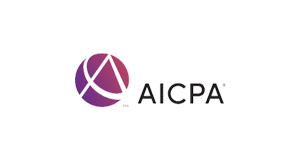*Disclaimer: As we discuss estate planning, keep in mind that as a financial advisor and a financial planner, we are not authorized to practice law. We cannot prepare legal documents and do not make recommendations regarding legal documents. These are things that must be done by an attorney. This video and companion blog post are for illustrative and informational purposes only. Please seek out professional advice from an attorney regarding your unique situation. If you’d feel more comfortable, arrange to have your financial planner join you as you discuss these matters with your attorney.
When it comes to estate planning, too many people are careless. They never get around to creating a will or a trust. Or, maybe they do, but they don’t think through all the legal and financial implications of passing on their assets to their heirs.
By failing to do some simple things, it’s possible to leave your children with lots of questions, big legal hassles, and even bigger tax bills.
Nobody wants that. So, in this blog post (and companion video), we want to talk about a more careful approach to estate planning. To help break down this complex topic, we’re actually going to use the acronym C.A.R.E.
C.A.R.E. stands for:
-
- Creating liquidity
-
- Avoiding probate cost
-
- Reducing taxes
-
- Executing dispositive documents
Let’s look at those four components of estate planning one at a time.
The “C” of C.A.R.E. stands for…
Creating Liquidity
Liquidity refers to assets or cash you can get your hands on easily and without having to pay some kind of penalty. “Creating liquidity” refers to structuring your assets so that you have cash available for big expenses–without having to pay surrender penalties or fees to get that cash.
The fact is, there are a lot of expenses that occur at death. Do some research and you’ll see that in some ways the annual increase in the cost of dying has exceeded the annual increase in the cost of living!
Here’s one example of why it’s important to have some cash that’s accessible. Many people want to pay off their mortgage upon the death of their spouse. In this way, they’re not burdened with this ongoing obligation.
But of course, to do something like that, you need to have available cash. Some of your assets need to be liquid.
The “A” of C.A.R.E. stands for…
Avoiding Probate
“Probate” is that legal process that occurs after someone’s death. It involves a court validating the person’s will (if they have one). It also includes paying any outstanding debts and taxes owed by the individual, then overseeing the distribution of the person’s remaining assets to any heirs or beneficiaries.
Probate has its advantages:
-
- It validates the will of the deceased–if one exists.
-
- It protects creditors by ensuring that all debts of the estate get paid.
-
- It gives all concerned parties the ability to be heard
-
- It provides an orderly distribution of the decedent’s assets.
-
- It ensures heirs have clean titles to any assets.
But most people want to avoid probate because it has some major disadvantages:
-
- It can be costly (usually a percentage of the assets).
-
- It can be complex (for example, property located in a state outside of the decedent’s state of domicile may trigger a separate probate).
-
- It is usually a very slow process, causing delays in the transfer of assets to the heirs.
-
- It’s open to the public so there’s no privacy.
As a result, many people choose to pass on their property by some other means than a will, usually by some form of contract.
Some common and attractive options include:
-
- Transfer-on-death (TOD) for investment accounts
-
- Payable on death (POD) for bank accounts
-
- Beneficiary designations for life insurance, annuity contracts, and retirement accounts
-
- Operation of law for real property (like joint tenancy with right of survivorship, for example)
So, for example, with life insurance death proceeds, as long as they are paid to a designated beneficiary and not to the insured’s estate, they will avoid probate.
This is where your planning is important. The more you plan, the more likely you’ll have a smooth transition. Doing this correctly can cut down on costs, complexity, and time.
The “R” of C.A.R.E. stands for…
Reducing Taxes
Some estate planners focus almost exclusively on federal estate tax consequences. However, there are also federal income taxes, and–in some cases–state income and state estate taxes.
This is where estate planning can get complicated. Some people think that by setting up an irrevocable trust, they’ll be able to give away property during their lifetime and avoid heavy estate taxation at death.
However, with that approach, it’s possible to lose the income tax benefit that comes from the “step up in basis” rule.
“Step up in basis” is a legal way–upon the death of someone–to adjust the value of the asset being passed on from its original price to their current market value. This has the effect of reducing the capital gains tax owed by the inheritor when the asset is sold.
Say, for example, an elderly couple has a home they bought in 1970 for $50,000, but now that property would easily sell for $750,000. Upon their death, their heirs could use the step up in basis provision to avoid having to pay capital gains taxes on the appreciation of that property.
The income tax savings resulting from the higher basis may be more advantageous than trying to offset estate tax consequences.
Another thing to think of regarding taxes at death is what happens to your traditional TSP or traditional IRA. There is no step up in basis for that. The balance in these accounts will be fully taxable.
According to the new Secure Act 2.0 law, if these balances are bequeathed to a non-spouse beneficiary, in most cases, that individual will only have 10 years to take the money out. This smaller window of time can mean higher taxation for your heirs.
This is where some tax planning is wise. You can look at what your tax bracket would be while living, compared to what your heirs’ tax bracket may be at death. Depending on your tax bracket, you may find that it makes sense to do some Roth conversions while you’re living. Or, it may be that your beneficiaries will be in a better tax bracket, and they can inherit the traditional money and pay the tax themselves at a better rate. The main idea here is to keep taxes in the forefront of your mind as you’re planning your estate.
The “E” of C.A.R.E. stands for…
Executing Dispositive Documents
“Dispositive documents” are the legal papers (e.g., a will or a trust) that specify how an individual’s assets and possessions are to be distributed upon their death. These documents delineate who should inherit what and under what conditions.
Here are the primary ways property can be passed on:
-
- Through the decedent’s will, passing through probate
-
- By law of intestacy. This transfers property without a will and it transfers property not included in a will.
-
- By contract (i.e., beneficiary forms found in life insurance contracts, retirement plans, annuities; these assets avoid probate)
-
- By payable-on-death (POD) or transfer-on-death (TOD) for other accounts
-
- Real estate deeds
-
- By operation of law (i.e., the automatic transfer or distribution of assets, rights, or responsibilities upon the death of the decedent, as prescribed by legal rules or statutes, rather than through the terms of a will or other documents; in other words, not via probate)
-
- By joint tenancy with right of survivorship or joint tenancy by the entirety
-
- There are trust transfers. In this way property avoids the probate process.
-
- Or you can do it by gifts and avoid probate. There are lifetime gifts and there are annual gift tax exclusions.
Don’t put off estate planning!
Hopefully, you’re beginning to see that there are real consequences to dying without a will. Many people assume, “I don’t need a will; my spouse will get what I own.” Sometimes it works this way, but there are situations where it doesn’t.
In many states, for example, if you die, leaving behind a spouse and two minor children, probate property will pass 1/3 to the surviving spouse and 2/3 to the children. Is that how you would have wanted your possessions distributed? Or would you have preferred for 100% of the property to go to your spouse?
Another problem is that the lack of a will almost always increases the cost of probate. It makes everyone’s job harder. Attorneys and representatives may charge more because of it. The personal representative has to be bonded and the estate has to pay the cost of that.
Now, this is a lot of information and I’m not an attorney. But I wanted to bring your attention to these matters because there is immense benefit in estate planning. With a little effort, you avoid a lot of problems.
Some final tips:
-
- If you don’t have a will, start the process of getting a will.
-
- Remember that some assets can be passed on simply by contract–by having a beneficiary form. Make sure you have the proper beneficiary forms filled out. Make sure you specify primary beneficiaries and contingent beneficiaries. This will ensure your money goes to whom you want it to go.
-
- Check the titles on your property. Are they correct? Many first marriages will have the property entitled joint tenancy with right of survivorship. That means the house becomes the other spouse’s upon the death of the first spouse. But people in a second marriage–where each spouse has their own set of children–may not want to set up their property in this manner. Tenancy in common is where, when one spouse dies, their interest goes to their heirs and not to the other joint owner.
You can see how having your estate set up correctly is critical. And being C.A.R.E.-less is likely to cost your heirs time and trouble.
If you need individualized help with retirement planning, visit our website christycapital.com and click the green button that says TALK WITH AN ADVISOR. We’ll be in touch right away.







